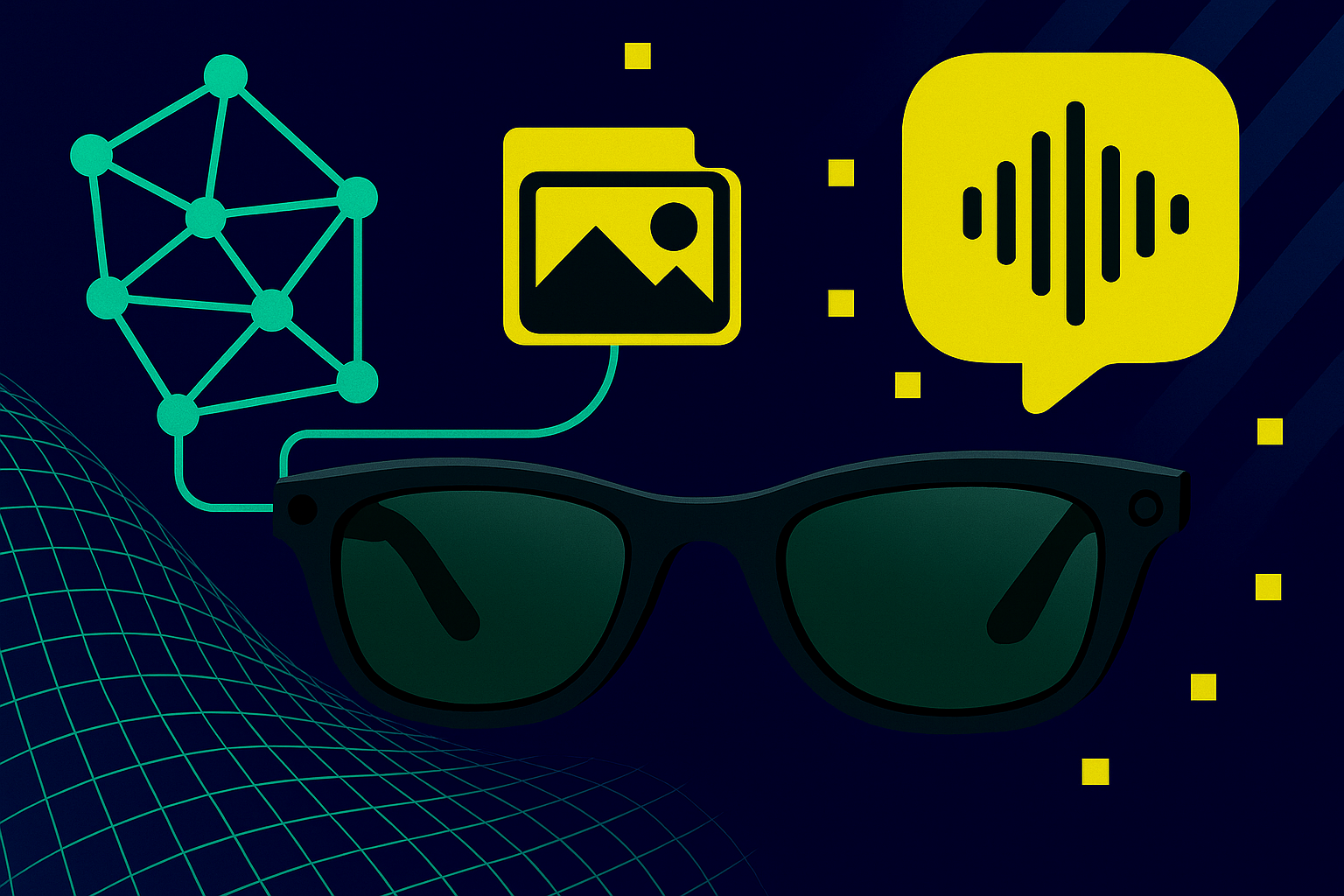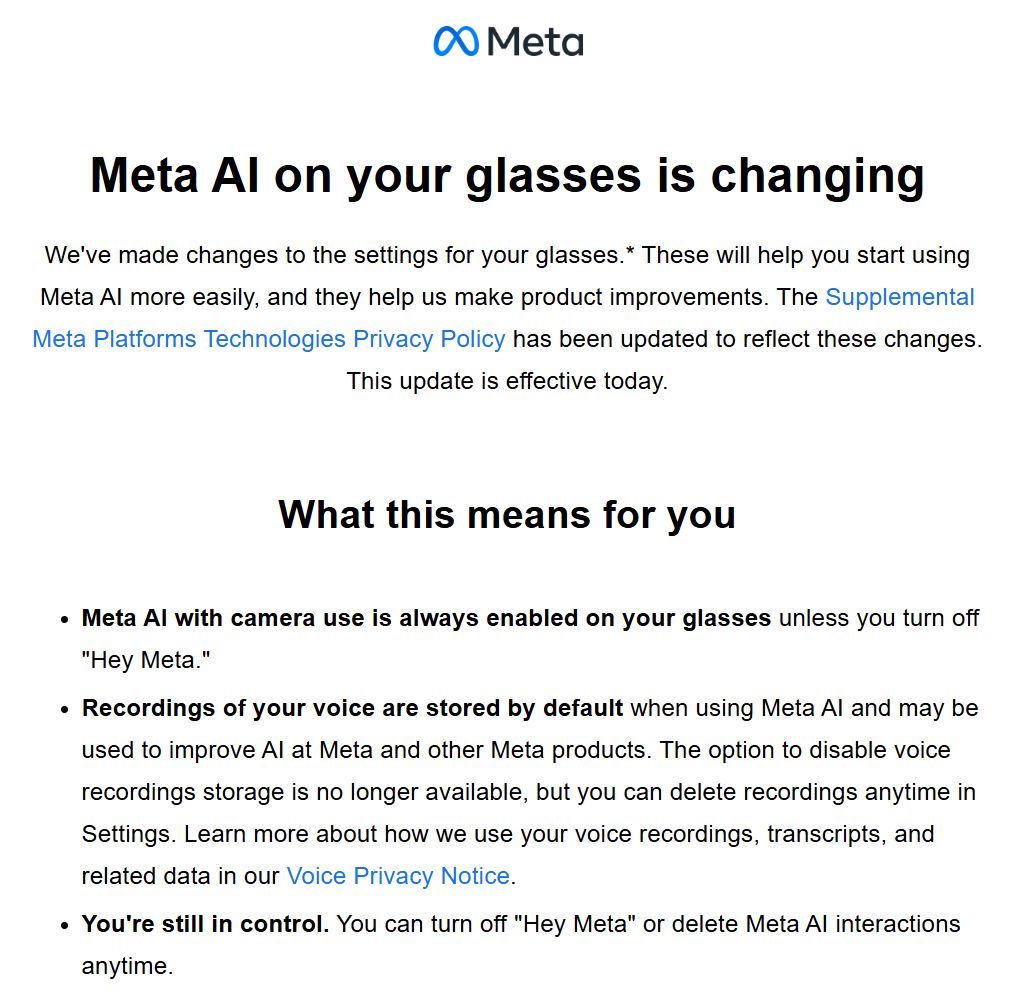Meta Ray-Ban smart glasses now record your voice by default to train Meta's AI models

Key Points
- Meta has changed the data protection settings for its Ray-Ban smart glasses in the US: voice recordings are now stored by default, and Meta AI’s camera features are automatically enabled.
- The stored voice data may be used to improve Meta AI and other Meta products, and users can no longer fully opt out of audio storage.
- Users can only delete specific voice interactions afterward or turn off voice control entirely; camera recordings are not used for AI training unless users actively share them.
Meta has updated its U.S. privacy policy for the Ray-Ban Meta smart glasses to enable automatic voice recording by default. These recordings can now be used to train Meta AI and other Meta products.
Users no longer have the option to disable voice recording entirely. However, individual interactions can still be deleted manually through the companion app. The Meta AI camera also remains active by default, unless voice control is fully turned off.
Meta describes these changes as necessary to make Meta AI easier to use and to enhance product functionality, claiming that users remain "in control." In practice, however, control is limited to two options: manually deleting saved recordings or disabling voice control altogether.

According to Meta, the collected audio data is used to enhance voice processing and recognition capabilities. This includes training models to better understand commands like "Hey Meta, next song," with input from both machine learning systems and human reviewers.
Stored audio recordings and related data are used to improve Meta's speech technologies (for example, our speech-to-text technologies) with the help of trained reviewers.
Unintended voice activations — or "false wakes" — are also saved, but automatically deleted within 90 days. Regular voice recordings and transcripts can be stored for up to one year. Users can delete them at any time through the app, after which Meta states they will no longer be used for product development.
For now, camera recordings will be excluded from AI training
According to a statement from Meta spokesperson Albert Aydin to The Verge, images and videos captured using Meta’s smart glasses — including those taken via voice commands like "Hey Meta, take a photo" — are not currently used for training AI models.
These files are stored locally in the camera folder of the paired smartphone. If users decide to share this media through Meta services—such as Meta AI, cloud features, or third-party apps—then the respective services' privacy policies apply.
Still, the default activation of an AI-powered camera that continuously monitors the environment could raise concerns among privacy advocates and users. Dr. Dan Odell, a consumer product specialist at Amazon's Lab126, which is home to projects like the Alexa voice assistant, criticized Meta's privacy policy around its smart glasses in a recent LinkedIn post.
"Meta has decided that they'll turn on the camera on my glasses by themselves and will keep all of my voice recordings by default. That is the end of using Meta Raybans for me," wrote Odell.
AI News Without the Hype – Curated by Humans
As a THE DECODER subscriber, you get ad-free reading, our weekly AI newsletter, the exclusive "AI Radar" Frontier Report 6× per year, access to comments, and our complete archive.
Subscribe now